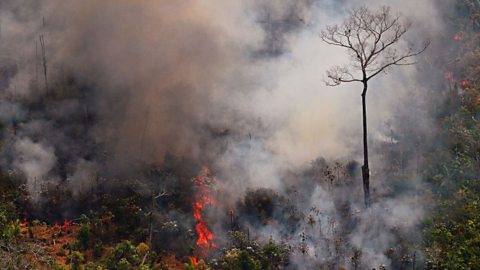Have you ever had the sneaking suspicion that our summers (and the rest of our seasons) now are slightly different to how they used to be? Well, you wouldnвҖҷt be alone.
According to the 2019 State of the UK Climate Report which was published in July 2020, July 2019 saw a record breaking peak temperature of 38.7C. Not only that, but 2019 was hotter than any year between 1884 and 1990. In short, our summers are heating up.
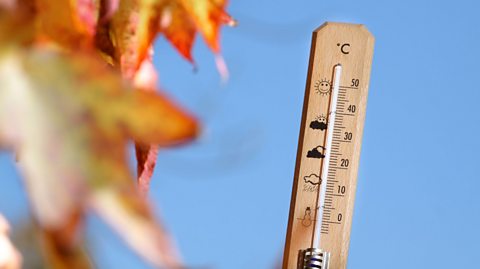
But itвҖҷs not just summer thatвҖҷs changing - all of the UKвҖҷs four seasons are experiencing shifts.
While you might already be able to spot some variations from year to year, we wanted to find out if our seasons are changing according to science.
Seasons to remember
First of all, what actually is a season? You may think thatвҖҷs pretty obvious - summer is warm and around July, and winter is cold and around December, right?
Well, youвҖҷre not exactly wrong, but there are in fact multiple ways to define the seasons.
The first two weвҖҷre going to look at are meteorological and astronomical seasons. These are fixed points and have strict start and finishing times.
The chief executive of the Royal Meteorological Society (RMS), Liz Bentley, explains that for meteorological seasons, вҖңspring is March, April, May; summer is June, July, August; autumn is September, October, November; winter is December, January, February.
вҖңWe keep it to whole months because it allows us to collate data and to compare one season to the next and to look at the climatology of the season.вҖқ
on the other hand are based on the equinoxes and the solstices. The summer and winter solstices are on or around 21 June and December respectively, and the spring and autumn equinoxes are on or around 21 March and September respectively. They mark the start of the astronomical seasons.
Lastly, we have phenological seasons. Phenology is the reaction of plants and animals to weather and climate. So this could be when animals go in and out of hibernation, or when the leaves on trees start changing colour and falling off. The seasons are roughly measured by when certain groups of events happen within a certain timeframe.
Lorienne Whittle, a citizen science officer at the Woodland Trust, explains that phenology allows for a more fluid definition of what the seasons are and what they mean to us: вҖңNature doesn't really follow our calendar, it basically reacts to the weather, as we do as peopleвҖҰ if we see it raining outside, we put a coat on.вҖқ
Whichever method you use, however, all of the historical data comparisons show the characteristics we use to define our seasons, whenever they may start, are noticeably changing.
Spring has sprung
LetвҖҷs start with phenology. To track change, you need to compare how nature reacts to the weather in different years. This is what the Woodland Trust, and Lorienne herself, do.
Some of their records go back as far as 1736, thanks to a man called Robert Marsham who noted nature events down in diaries as a hobby. However, this data alone would be extremely limiting, as it wouldnвҖҷt give an accurate representation of nature events across the UK. So, they started a citizen science project called NatureвҖҷs Calendar to look at when nature events happen up and down the country.
They ask people to record when certain things happen, and they use events for which they already have a lot of records.вҖңIt would have been really foolish to go out and choose a different set of plants and animals to record that didn't match those historical data records,вҖқ Lorienne explains. They also need to be things that happen across the UK, and things that are easily recognisable by the general public.
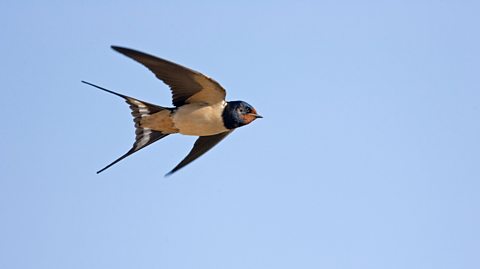
The oldest records are in their spring index. They go back to 1891, and include things like the first sighting of a swallow. All of the events included in the index happen at a similar time of year, and are used as indications of the start of spring. Having these records mean that they can track how spring has changed over the decades, and with NatureвҖҷs Calendar, they can do this for other seasons too.
So, how have our seasons changed according to their data?
вҖңWhat the project is showing us is that our seasons are blurring.вҖқ
Lots of speciesвҖҷ events are happening a lot earlier than they used to, Lorienne says. In fact, according to the Woodland Trust, spring now starts six days earlier than it did in 1999.
This may seem like a small amount, but Lorienne insists that it is significant: вҖңThe impact is huge in terms of the repercussions down the food chain.вҖқ
For example, oak trees leaf earlier in a warmer spring. Oak leaves are really important for caterpillars - itвҖҷs their main source of nutrition. The caterpillars don't mind if they come out a bit earlier, as it just means their numbers increase slightly earlier too.
Blue tits, great tits and pied flycatchers all feed on those caterpillars, so you might think more caterpillars = great for them. But the life cycle of the caterpillars is really important for the survival of these birds, as they can only eat caterpillars up to the point at which they form a chrysalis. The chickвҖҷs chances of survival increase or decrease depending on the amount of caterpillars there are to eat вҖ“ if the caterpillars get to chrysalis stage earlier, and the birds donвҖҷt realise, the birdsвҖҷ food supply decreases considerably.
Lorienne explains: вҖңThose birds can't react in the same way that the caterpillar has to the oak treeвҖҰ in a warmer spring, the birds aren't able to.вҖқ
This has massive impacts on the amounts of those birds surviving in the wild. And this is only one example of how a food chain can be disrupted - similar things are happening to lots of other animals and plants, too.
Let it grow
Earlier springs and other changes to our seasons are a result of climate change. This is because our average global temperature is going up, and it has done so already by about one degree Celsius in the last 100 years.
вҖңPhenology has been noted as one of the earliest and easiest ways of tracking climate change,вҖқ Lorienne says. But it canвҖҷt be used in isolation - it needs to be studied alongside lots of other things to get an accurate representation of how our climate is changing.
Climate change isnвҖҷt just having an effect on the four seasons you already know. Introducing the not-so-new kid on the block: the growing season. This is the period of the year in which crops are able to grow, and is another great indicator of the changes in our climate that can be looked at alongside phenology.
So what do we classify as being the growing season? Liz at the RMS explains: вҖңWe start the growing season when the temperature gets to five degrees Celsius or more for five consecutive days. It ends when the temperature drops below five degrees or more for five consecutive days.
Because of the change in our climate, namely that itвҖҷs getting warmer, Liz says that since the '60s weвҖҷve started to get roughly a month longer growing season in the UK.
This change has actually been positive in some ways she says: вҖңWe can grow things in this country that we never used to be able to partially because it's warmer, but mainly because we've reduced the number of hard frosts that we get in the winter.
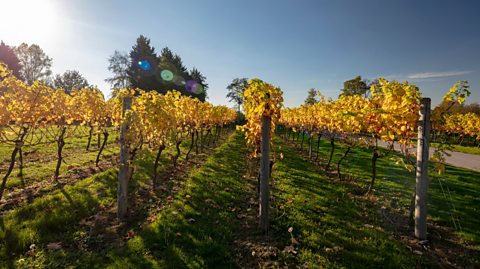
However, Liz acknowledges itвҖҷs вҖңa double-edged sword.вҖқ
вҖңWe get some positive things, but we also get some negative things.вҖқ
These negative impacts are pretty well documented: rising sea levels leading to mass flooding, extreme weather events becoming more frequent and, as Lorienne mentioned earlier, food chains being disrupted.
In the bleak mid-winterвҖҰ?
It doesnвҖҷt stop there. Not only do we have spring six days earlier, and a month extra on our growing seasons, but according to the Woodland Trust, in 2019 we didnвҖҷt have a winter.
Well, sort of. Lorienne explains: вҖңLast winter we didn't have a very cold winter at allвҖҰ we had an extended autumn.вҖқ
In fact, according to the State of the UK Climate Report 2019, a new winter temperature record of was set at 21.2C on 26 February in Kew Gardens (London), and overall last winter was the eighth warmest weвҖҷve ever had in the UK.
2019 was also the one of the least snowy winters weвҖҷve ever had in the UK. You may have noticed this yourself - when was the last time you had a white Christmas?
According to Lorienne вҖңwe kind of feel like we're losing winter a little bit.вҖқ
Four seasons in one day
Liz agrees, insofar as our winters are getting much warmer.
вҖңOur winters are getting warmer and wetter (we've noticed that change in the last 40 or 50 years), and our summers are getting hotter and drier.вҖқ
So does all of this information together mean that we need to redefine what we think our seasons are like?
вҖңThat's what we do with climatologyвҖқ, Liz says. вҖңWe look at 30 year averages. Andif you go back 30 or 40 years, the typical climate of a season in the UK could be described in a certain way with a certain average temperature and a certain amount of rainfall. Now, 30-40 years on, the climate of that season has changed somewhat.
вҖңThe basic climatology of each of the seasons is changing, has changed, and will continue to change.вҖқ
But what does this mean for our seasons moving forward?
Liz says that she still thinks weвҖҷre going to have four seasons, but weвҖҷre just going to have to look at them differently. Countries nearer the equator only have wet and dry seasons, and she canвҖҷt see the UK moving to such a binary landscape.
However: вҖңIt just means each of the seasons are going to be different from what we would have had a century ago or 50 years ago, because the temperatures are going up and the rainfall patterns are changing.вҖқ
And we should look out for more extreme weather events, too.
So according to the scientists, the answer to the question вҖҳare our seasons changing?вҖҷ is a resounding yes. And itвҖҷs literally happening as we speak: вҖңIt's not something for the future,вҖқ Liz says.
вҖңIt's actually happening here, now, on our doorsteps.вҖқ
This article was published in September 2020.
Why do leaves fall off trees?
It happens every year, but do you know why?
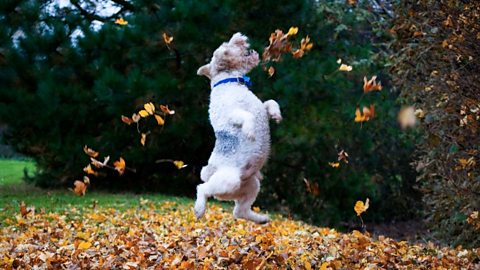
How much do you really know about climate change?
We are always hearing about it in the news, but have you been paying attention?
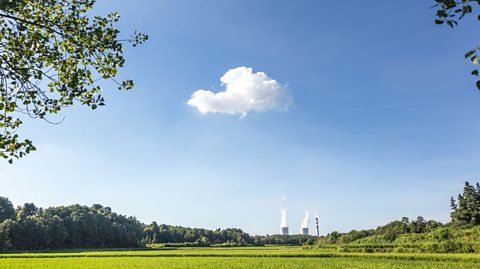
What would the world be like without forests?
Deforestation is happening all over the world, but what would happen if we ran out forest altogether?
